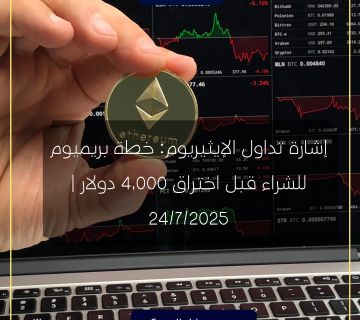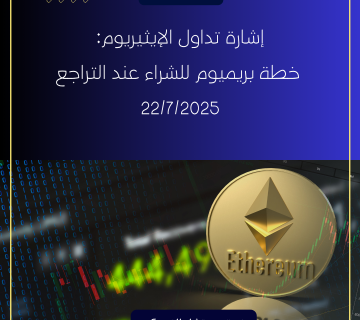An In-Depth Guide to Cryptocurrency ICO (Initial Coin Offering)
What is an ICO?
Definition and Overview
An Initial Coin Offering (ICO) is a method of fundraising primarily used by blockchain-based startups. It allows companies to raise capital by selling digital tokens to investors in exchange for established cryptocurrencies like Bitcoin or Ethereum, or even fiat currencies. The concept behind ICOs is similar to traditional IPOs (Initial Public Offerings), but instead of shares, investors receive digital assets called tokens.
History of ICOs and the Rise of Cryptocurrency
ICOs became widely popular in 2013 when Mastercoin launched the first-ever ICO. However, it was the Ethereum ICO in 2014 that truly revolutionized the concept, raising over $18 million and leading to the creation of a platform that supports smart contracts. The rise of ICOs is closely tied to the surge in cryptocurrency adoption, making it a favored method for funding innovative blockchain projects.
How Does an ICO Work?
The Pre-ICO Stage
The process begins with a Pre-ICO stage, where companies engage in private fundraising rounds to gauge interest and gather initial funds. This phase often includes offering bonuses or discounts to early investors as a way to create buzz and encourage early participation.
Token Creation and Sale Process
Tokens are the core of any ICO. These digital assets are created using blockchain technology, most commonly on platforms like Ethereum or Binance Smart Chain. The ICO event is then announced, and tokens are sold to investors in exchange for cryptocurrencies or fiat money.
Use of Blockchain in ICOs
Blockchain plays a vital role in ICOs by ensuring transparency, security, and immutability. Smart contracts—self-executing code—automate the entire token sale process, from issuing tokens to managing transactions, reducing the chances of manipulation or fraud.
Types of ICOs
Private ICOs
In a private ICO, only selected investors can participate. These events are usually restricted to accredited investors or major financial institutions, providing a more secure investment environment but limiting access to the general public.
Public ICOs
Public ICOs are open to everyone. They are more inclusive and democratized, allowing anyone with an internet connection and the required cryptocurrency to participate. This model has contributed significantly to the global popularity of ICOs.
Security vs Utility Tokens
Tokens can generally be classified into two categories: security tokens and utility tokens. Security tokens represent ownership in a project and may be subject to financial regulations, while utility tokens provide access to a product or service within a particular ecosystem.
Benefits of Participating in an ICO
High Returns on Investment
One of the primary attractions of ICOs is the potential for high returns. Early investors in successful ICOs, like Ethereum and Binance Coin, saw exponential increases in the value of their tokens.
Early Access to New Projects
ICOs offer investors the opportunity to get involved with a project at its inception. This early access can be advantageous as tokens are often available at lower prices compared to their future trading value.
Decentralized Crowdfunding Opportunities
ICOs are a form of decentralized crowdfunding, allowing startups to bypass traditional financial systems and raise capital directly from the public. This makes it easier for innovative projects to secure funding without the need for intermediaries.
Risks Associated with ICO Investments
Regulatory and Legal Risks
The regulatory environment for ICOs is still evolving, and it varies significantly by country. Some regions have stringent laws, while others have adopted a more lenient approach. This uncertainty poses risks for investors, as regulations can change, impacting the legality and profitability of ICO investments.
Security Concerns
Despite the advantages of blockchain, ICOs are not immune to hacks and cyber-attacks. Investors need to be cautious about security vulnerabilities, ensuring they store tokens in secure wallets and avoid suspicious platforms.
Scams and Fraud in ICOs
The unregulated nature of ICOs has made them a target for scams. Some ICOs promise high returns but fail to deliver, disappearing with investors’ money. Performing due diligence is crucial to avoid fraudulent schemes.
How to Evaluate an ICO Before Investing
Checking the Whitepaper
A whitepaper is a technical document outlining the project’s concept, technology, and goals. It is essential to scrutinize this document to understand the project’s viability and the team’s vision.
Understanding the Team Behind the Project
The success of an ICO often hinges on the expertise of the team. Investors should research the backgrounds of the founders and developers to ensure they have the skills and experience needed to deliver on the project’s promises.
Assessing the Project’s Roadmap and Goals
A clear and realistic roadmap is a sign of a well-planned project. It indicates the team’s strategy, objectives, and expected timeline for achieving milestones, helping investors gauge the project’s potential.
ICO Regulations Around the World
ICO Regulations in the USA
In the United States, the SEC (Securities and Exchange Commission) closely monitors ICOs to protect investors. ICOs must comply with specific regulations if they are deemed to offer securities, making the U.S. market one of the most regulated environments for ICOs.
ICOs in Europe
Europe has a mixed approach to ICOs. Countries like Switzerland and Malta have embraced ICOs, offering favorable conditions, while others have stringent regulations to prevent fraud. The European Union is working towards a unified legal framework to govern ICOs.
Asian Market’s Stance on ICOs
Asia has seen both acceptance and restriction regarding ICOs. Countries like South Korea and Japan have established regulatory frameworks, whereas China has outright banned ICOs to protect investors from potential fraud.
Popular ICO Success Stories
Ethereum ICO (2014)
Ethereum’s ICO in 2014 is one of the most notable examples, raising $18 million and giving birth to the second-largest cryptocurrency by market capitalization. It also popularized the concept of smart contracts.
Filecoin ICO
Filecoin’s 2017 ICO raised over $250 million, marking one of the largest ICOs in history. Its decentralized storage network caught the attention of both institutional and individual investors.
EOS ICO
EOS conducted an ICO over a year-long period, raising more than $4 billion. This project aimed to create a highly scalable blockchain, capable of hosting decentralized applications (dApps) efficiently.
How to Participate in an ICO
Setting Up a Cryptocurrency Wallet
To participate in an ICO, investors need a compatible cryptocurrency wallet. These wallets are used to store the tokens purchased during the ICO securely.
Using Cryptocurrency Exchanges
Some ICOs may require you to use a specific cryptocurrency exchange for participation. These platforms facilitate token purchases and often list the token once the ICO concludes.
Securing Your Investments
Security should be a top priority. Investors should use hardware wallets, enable two-factor authentication, and avoid sharing sensitive information to minimize the risks associated with ICO participation.
Alternatives to ICOs: STOs and IEOs
What is an STO?
A Security Token Offering (STO) is a regulated ICO alternative, where the tokens are considered securities and must comply with legal requirements. STOs provide more security for investors but come with increased regulatory obligations.
IEOs vs. ICOs
Initial Exchange Offerings (IEOs) are another alternative, where the token sale is conducted on a cryptocurrency exchange. These platforms handle the sale, providing more trust and transparency than traditional ICOs.
Benefits of Alternatives to ICOs
STOs and IEOs offer a safer and more regulated environment for investors. They address some of the security and fraud concerns associated with traditional ICOs.
Trends and Future of ICOs
New Regulatory Developments
Regulations surrounding ICOs are expected to become clearer in the coming years. Governments are working on frameworks to protect investors while fostering innovation in the cryptocurrency space.
Growing Popularity of DeFi Projects
Decentralized Finance (DeFi) projects have become a significant trend within the ICO landscape. Many new ICOs are centered around DeFi, offering financial services without traditional intermediaries.
The Role of NFTs in the Future of ICOs
Non-Fungible Tokens (NFTs) are also impacting the ICO world. Some projects are leveraging NFTs for fundraising, providing unique digital assets as rewards for investors.
The Role of Social Media in ICO Promotion
Utilizing Twitter and Reddit for ICO Marketing
Social media platforms like Twitter and Reddit are powerful tools for promoting ICOs. They help build communities and generate hype, attracting potential investors from around the world.
Telegram Groups and ICO Communities
Telegram has become the go-to platform for ICO-related discussions. Dedicated groups allow investors to stay updated, ask questions, and interact directly with the project’s team.
Impact of Influencers on ICO Success
Influencers play a significant role in ICO promotion. Their endorsement can boost an ICO’s credibility, but it’s crucial to be wary of paid promotions without substance.
What to Do After an ICO?
Monitoring Project Development
Post-ICO, investors should keep a close eye on the project’s progress. Regular updates and milestone achievements indicate a healthy and active development process.
Staking Tokens and Earning Rewards
Some ICO tokens offer staking opportunities, where investors can lock their tokens to support the network and earn rewards in return.
Exchanging Tokens on Cryptocurrency Platforms
Once the ICO concludes, tokens are often listed on cryptocurrency exchanges, allowing investors to trade or hold them based on market trends and project updates.
Frequently Asked Questions About ICOs
Are ICOs Legal?
The legality of ICOs depends on the country. In some regions, they are allowed but regulated, while in others, they are restricted or banned.
How is an ICO Different from an IPO?
Unlike an IPO, where shares represent ownership in a company, an ICO offers tokens that may provide utility or serve as a form of digital currency.
What Happens if an ICO Fails?
If an ICO fails, the funds raised are usually returned to the investors, though this depends on the terms outlined in the ICO’s smart contract or agreement.
Conclusion
Summary of Key Points
ICOs have transformed the way startups raise funds, offering unique opportunities and risks. While the potential for high returns attracts many investors, careful research and due diligence are essential to navigate this dynamic and sometimes volatile market.
Final Thoughts on Investing in ICOs
Investing in ICOs requires a balance of enthusiasm and caution. Understanding the technology, regulatory environment, and project fundamentals can help investors make informed decisions, maximizing benefits while minimizing risks.
Cryptocurrency Trading: Exploring the Future of Digital Assets









